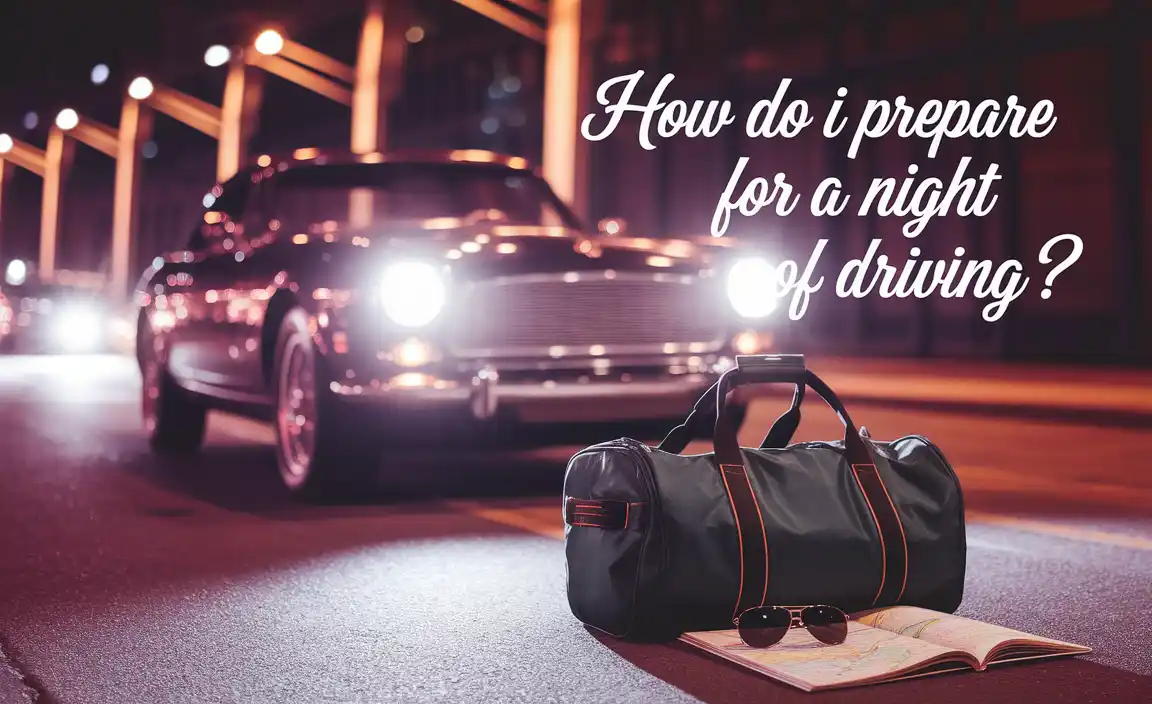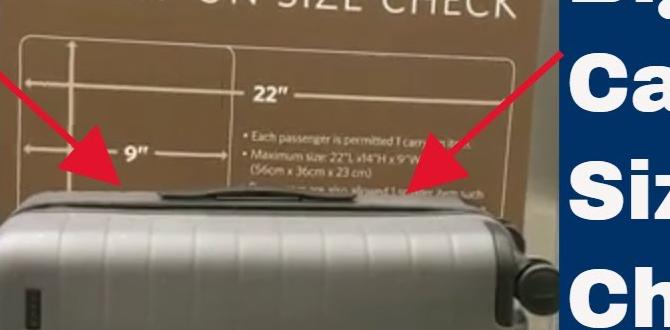Night rides can be thrilling and exciting, but they can also be rather demanding, leaving inattentive drivers to risk their lives and the lives of others. Driving at night differs greatly from driving during daylight hours, requiring extra attention, focus, and preparedness.
Are you someone who loves driving at night? Or have you got any urgent night plans coming up? We will share the top 10 tips to help you Prepare For A Night Of Driving . Getting sufficient rest, planning rest stops, bringing healthy snacks and plenty of water, and using headlights to drive defensively. Read on to know what to focus on and avoid while driving at night.

How Do I Prepare For A Night Of Driving? 10 Safety Tips
Driving at night can be a challenging task, especially for those who are not used to it. Before hitting the road at night, you should ensure that your vehicle’s equipment is in order, that you have plenty of rest, and that you are alert. As a general rule, you should avoid driving between 12 am and 6 am, as this is when most accidents related to driver fatigue occur.
Limiting distractions, following the speed limit, and watching for obstacles are also important. Use your headlights correctly, and if you need to stop, park in a safe and visible area. Before hitting the road, always ensure you have a suitable insurance policy for emergencies.
Taking regular breaks will help you stay alert throughout the journey. And under no circumstances should you drink and drive. These safety tips will help you have a safe and enjoyable nighttime driving experience.
1. Use Your Headlights
Driving at night can be challenging due to reduced visibility and other factors. To prepare for a safe night of driving, here are ten safety tips to remember. Starting with the first safety tip, Use your headlights when driving at night, during bad weather and low visibility, and when going through road construction zones.
This will help you see the road ahead clearly and help other drivers see you. Don’t forget to use your high beams when appropriate to have the most visibility possible. Remember to keep the interior lights dimmer to help your eyes adjust to the road. Also, it’s important to avoid turning your lights off when driving at night, even on a well-lit motorway.
2. Leave Space
If you’re planning a night of driving, taking safety precautions is important to ensure your trip is as smooth and safe as possible. One important safety tip is to leave space between your vehicle and others on the road. This is particularly important at night when visibility is reduced and the risk of collisions is higher.
Additionally, it’s a good idea to start looking for a gas station when your fuel level is around half a tank. Being stranded at night can be uncomfortable and potentially dangerous, so it’s important to plan and have a map of fuel stops along your route.
3. Bring Healthy Snacks And Plenty Of Water.
Another important aspect of preparing for a night of driving is to bring healthy snacks and plenty of water. Staying hydrated and nourished will help you stay alert and focused while driving.
Avoid sugary snacks and drinks that can cause a sudden energy crash. Instead, opt for healthy snacks like fruits, vegetables, and nuts. Taking breaks and stretching your legs every few hours is also a good idea to reduce fatigue. Remember, safety should always be your top priority when driving at night.
4. Keep The Environment Cool And Energizing.
To keep yourself alert and awake while driving at night, it’s important to keep the environment in your vehicle cool and energizing. Keep the temperature inside the car slightly cooler than outside to avoid feeling drowsy. You can also play upbeat music or listen to a podcast to keep your mind engaged and energized.
However, ensure the volume is low enough to hear outside noise and emergency vehicles. Remember, fatigue and drowsiness can be deadly when driving, so take advantage of rest stops and switch drivers if possible.
5. Entertain Yourself
One way to keep your mind engaged and alert are to listen to podcasts and audiobooks. Sign up for a free trial of Audible Plus to access various media content. Alternatively, you can sing or talk aloud to yourself to stay conscious while driving.
Remember to schedule regular rest stops to keep energy levels up and take breaks at service stations to get a coffee and do some light physical activity. These tips can help you stay alert and focused during your night ride.
6.Pay Attention To Traffic Signs.
When preparing for a night of driving, paying close attention to traffic signs is important. This includes speed limit signs, stop signs, and warning signs. Ensure you are familiar with the route you will be taking, and keep an eye out for any changes or detours. Additionally, avoid distractions while driving, such as texting or using your phone. Remember, safety should always be your top priority when behind the wheel.
7. Plan Rest Stops
Taking regular breaks is a good way to reduce fatigue and stay alert during night driving. Plan rest stops every two hours or when you start to feel tired. You can stretch your legs, grab a coffee, or view interesting places. Avoid driving for long periods without a break, and get adequate rest before heading on the road to ensure a safe and comfortable journey.
8. Drive Defensively
When preparing for a night of driving, there are several safety tips to remember. One important tip is to drive defensively. This means being alert, aware of your surroundings, and prepared to react quickly to potential hazards.
To drive defensively, it’s important to scan the area ahead of you and look for potential escape routes in an emergency. Avoid distractions like cell phones and give way to other drivers. If you encounter an oncoming vehicle drifting into your lane, slow down and pull to the right as far as possible. Warn the other driver using your horn or lights to avoid a potential collision. By following these safety tips and driving defensively, you can help ensure a safe and successful night of driving.
9. Get Plenty Of Rest The Day/Night Before
When preparing for a night of driving, it’s important to take certain safety precautions to ensure a safe journey. One of the most important things to do is get plenty of rest the night before you drive. Lack of sleep can impair your reaction time and decision-making abilities, making it more difficult to navigate the road safely.
In addition to getting enough rest, it’s important to avoid drinking alcohol and eating heavy meals the night before driving. Both things can make you feel tired and sluggish, making it harder to stay alert on the road. Be sure to drink plenty of fluids to avoid dehydration, which can also fatigue you.
10. Know Your Limits
When preparing for a night of driving, knowing your limits is important. This means recognizing when you’re tired and taking a break if necessary. Pushing yourself beyond your limits is unsafe, increasing your risk of accidents.
If you feel yourself getting tired, take a break and stretch your legs. If possible, take a short nap or switch drivers. Remember, safety should always be your top priority when driving at night.
Tips To Prepare For A Night Of Driving
Driving at night requires extra attention and precautions. To prepare for a night of driving, plan your rest stops accordingly to avoid fatigue and highway hypnosis. Additionally, timing your drives around peak sleepiness periods can reduce your risk of drowsiness-related accidents.
Proper usage of headlights and other lights can reduce glare and improve visibility. Avoiding distractions such as using cell phones or listening to loud music is highly recommended. Always be aware of your surroundings and note any unusual behavior from other drivers. By implementing these tips, you can stay safe while driving at night.
- Get plenty of rest the night before driving.
- Avoid drinking alcohol and eating heavy meals.
- Drink plenty of fluids to stay hydrated.
- Know your limits and recognize when to take a break.
- Pull over and rest if you feel drowsy.
- Drive defensively and stay alert to potential hazards on the road.
By following these tips, you can prepare for a night of driving and ensure that you can stay alert and safe on the road. Fatigue can be dangerous, so take plenty of breaks and prioritize your health and well-being while driving at night.
Things To Avoid While Driving At Night
Driving at night can be challenging and requires extra preparation for a safe journey. One important tip is to avoid two-lane highways as much as possible, as these can be more hazardous at night. Additionally, it’s a good idea to start looking for a gas station when you reach around a half tank of gas to avoid running out of fuel in the middle of nowhere.
It’s important to reduce your speed and increase your following distances when driving in hazardous conditions, such as low visibility or on wet or icy roads. Be aware of any distractions in or outside your vehicle that could affect your driving. Lastly, be aware of headlight glare to minimize its impact on yourself and other drivers. With these tips in mind, you can prepare for a night of driving and ensure a safe journey.
Conclusion
Driving at night requires extra precautions such as reducing speed, keeping a safe distance, and avoiding distractions. Night driving can be challenging for some due to differences in eyesight, reduced focus, and alertness. Therefore, regular self-assessment is important.
To minimize distractions, reduce brightness, avoid using your phone, keep your windshield clean, take frequent breaks, and adjust your speed. Mentally preparing for a road trip involves planning your route, ensuring the vehicle’s good condition and stocking essentials.
In conclusion, driving at night can be daunting, but with proper preparation, you can make it a safer and more enjoyable experience. Always prioritize your safety and the safety of others on the road. Use the recommended safety tips, and avoid driving after consuming alcohol or drugs or when you are too tired. With these simple tips, you can make it through the night and arrive safely at your destination. Stay safe on the roads, and if you find this information helpful, share it with your loved ones.
Frequently Asked Questions
[rank_math_rich_snippet id=”s-6c0987ba-ded5-4692-8350-1b80603c983e”]








